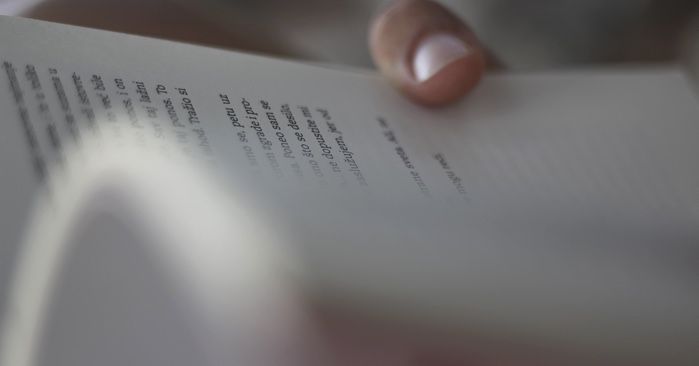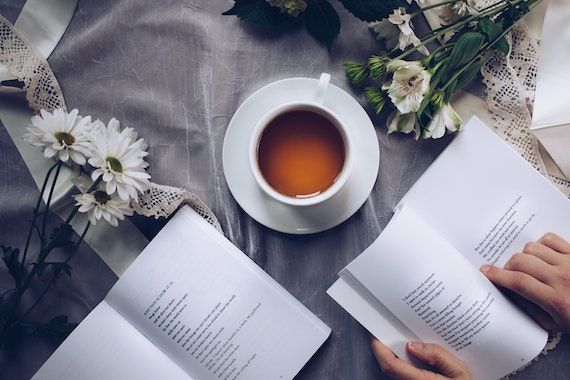
10 Reasons to Begin Reading Poetry
I haven’t always been a regular poetry reader, but last fall I began reading poetry again, and ever since I’ve been thinking about why I love it so much. I’ve also been thinking about why people are sometimes reluctant to read poetry. I decided to compile a list of reasons you might consider starting a practice of reading poetry, if you don’t have one already.

Let me be clear: if you don’t read poetry and don’t want to, that’s fine! I don’t think it has to be for everyone. But I also think there are a lot of people out there who are open to the idea but just haven’t begun yet. If it’s crossed your mind that you might like reading poetry, but you need a little encouragement to begin, this post is for you. Here are my ten reasons to consider reading poetry:
1. Reading poetry is fun!
The only reason to read something for fun is because it’s…actually fun, right? It may take some time to find poets you enjoy reading, but I promise you, those poets are out there. Poetry can be about anything and it can be in any mood: funny, angry, descriptive, sincere, satirical, sad, romantic, and on and on. There are long poems and short ones, confusing poems and clear ones, old and new, personal and impersonal. There truly is something for everyone.
2. Reading poetry will bring beauty into your day.
No matter what a poem is actually about, it’s going to use language in an innovative and, I would say, a beautiful way. Okay, beauty is subjective, and we’re going to disagree about what is and is not beautiful. But poets focus on how they they say things, not just what they say, so, in the best poems, you will find language that delights you. Reading even just one poem will bring an experience of beauty and maybe even joy into your day.
3. Poetry will surprise you!
If you are new to poetry, lucky you! There is an entire field of writing out there to explore. If you are a more experienced poetry reader, you will still be surprised by what you find when you sit down to read a poem. I felt this most recently while reading Ross Gay’s book-length poem, Be Holding, which is a book in part about basketball that made me cry three times. I did not expect that! The poem is about a lot more, but some of the basketball parts made me cry, and I am not someone who knows or cares about the sport. You never know how you will respond to a poem.
4. Poetry can activate your imagination and stretch your mind.
One of my favorite writers has this to say about poetry:
I love this idea of useful confusion! Poetry has a reputation for being difficult, a reputation that is sometimes fair, sometimes not. Plenty of poetry is easy to understand. But maybe instead of thinking of the other kinds of poetry as “difficult,” we might think of it as inspiring new ways of thinking or stretching our minds or allowing us to dwell in uncertainty. We don’t have to understand everything we read. Sometimes confusion can be productive.
5. Reading poetry is meditative.
Your mileage may vary with this one, but I find that reading a poem calms me down and helps me focus. I always read a poem multiple times to fully experience it, and the process of reading and rereading helps me forget my daily worries and to-do list. I emerge from reading poetry with a feeling of quiet and serenity.
6. Reading poetry makes you a better reader overall.
Poetry tends to foreground imagery, rhythm, and sound, and paying attention to these elements will help you notice it in other genres. Poetry is not so different from prose, and the more you read poetry, the more you will see that it’s all just…writing. Reading poetry helps you think about language itself, and that can change how you think about everything you read.
7. Reading poetry shows you the kinds of writing that are possible.
This connects to my argument that poetry will surprise you and that it can make you a better reader. You won’t know what kinds of writing are out there, and, even more importantly, what kinds of writing you will like, until you try many different types of books. Reading poetry shows you the wonderful variety of writing available, which seems like a good thing in and of itself. It also helps you figure out what you like and don’t like in your reading.
8. You can fit poetry into small pockets of reading time.
Poems are perfect for when you have, say, ten minutes of free time and want to do something other than look at your phone. Poetry is flexible that way: you can spend an hour reading multiple poems or five minutes reading one poem, and in both cases, you have accomplished something great. I like to read individual volumes of poetry instead of the “collected works” of so-and-so. This means that most poetry books I read are short, around 100 pages. I take my time reading them, but still easily read a book of poems a month. It feels very satisfying.
9. Some of the most exciting writing being published right now is poetry!
We are living in an exciting time for poetry, and you don’t want to miss out! In the last six months, I’ve read Postcolonial Love Poem by Natalie Diaz, Deaf Republic by Ilya Kaminsky, The Tradition by Jericho Brown, Book of Hours by Kevin Young, and Anodyne by Khadijah Queen, and they were all amazing. Yes, reading poetry from earlier eras is important and wonderful. But reading contemporary poetry is its own pleasure, one not to be missed.
10. Poetry is ancient, and reading it connects you to the history of humanity.
Poetry is the oldest form of literature, existing as an oral tradition before writing began. Reading it, especially if you listen to it or read it out loud, makes you a participant in an ancient practice. Spend some time doing the thing humans have been doing for millennia and get some poetry into your brain!
If I have convinced you to add poetry reading to your life, you might want some advice on how to get started. Check out How to Read Poetry for great suggestions on how to do it. You can also read Poetry Books for Beginners for book recommendations. And you can explore Book Riot’s many more posts on poetry. Enjoy!














